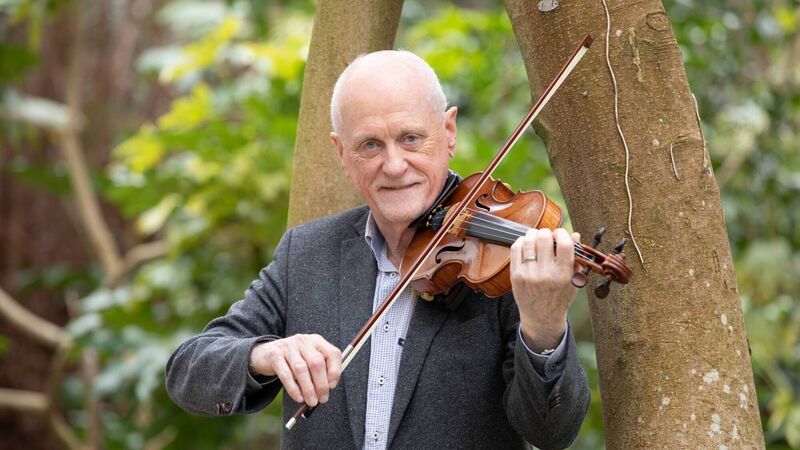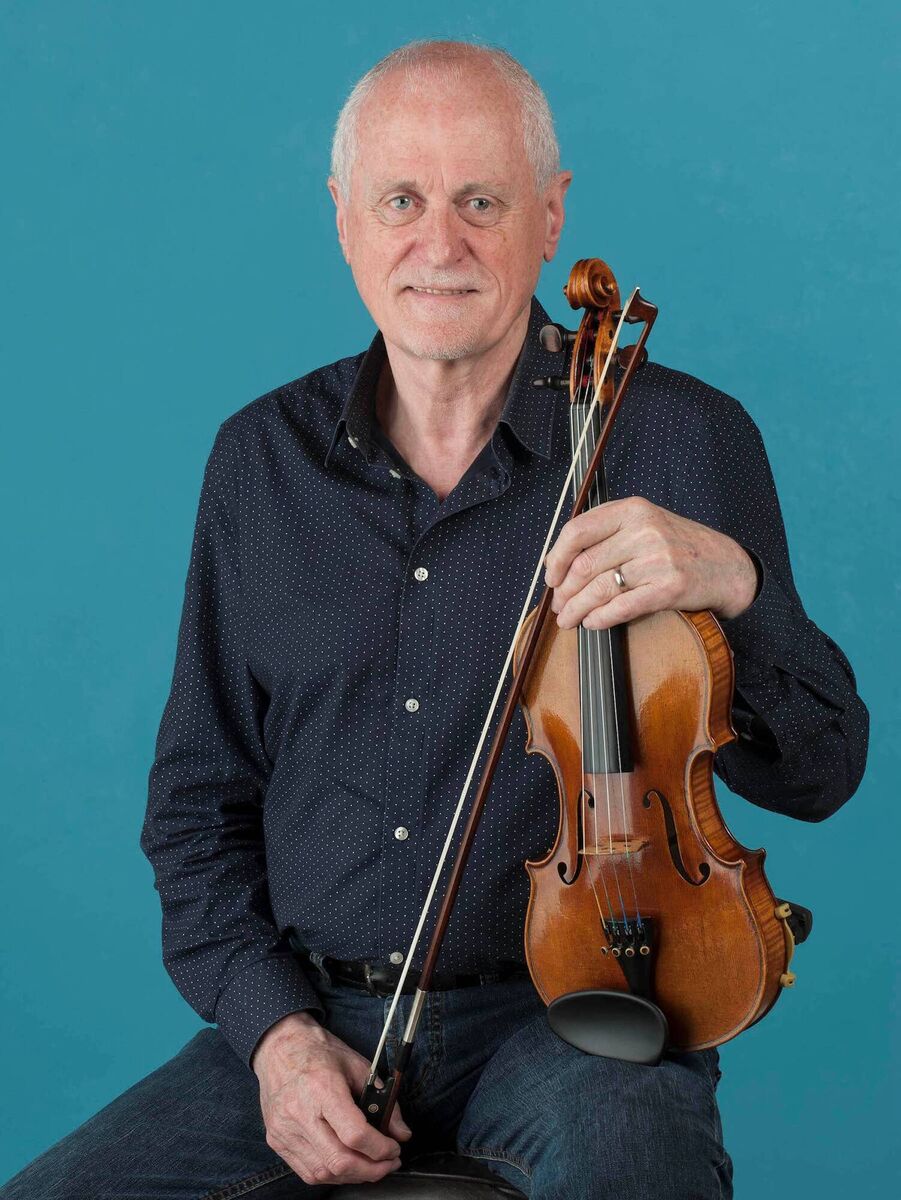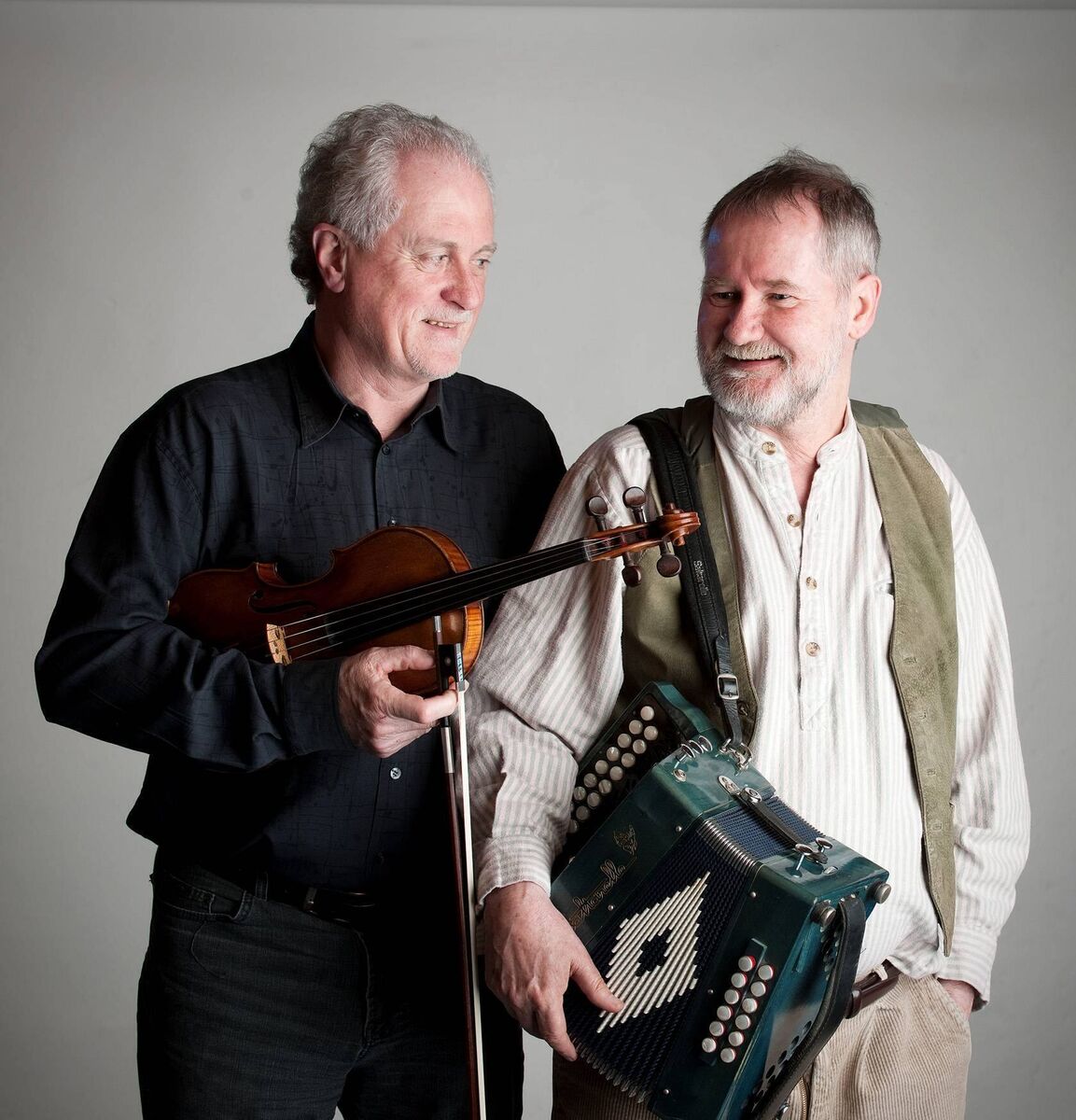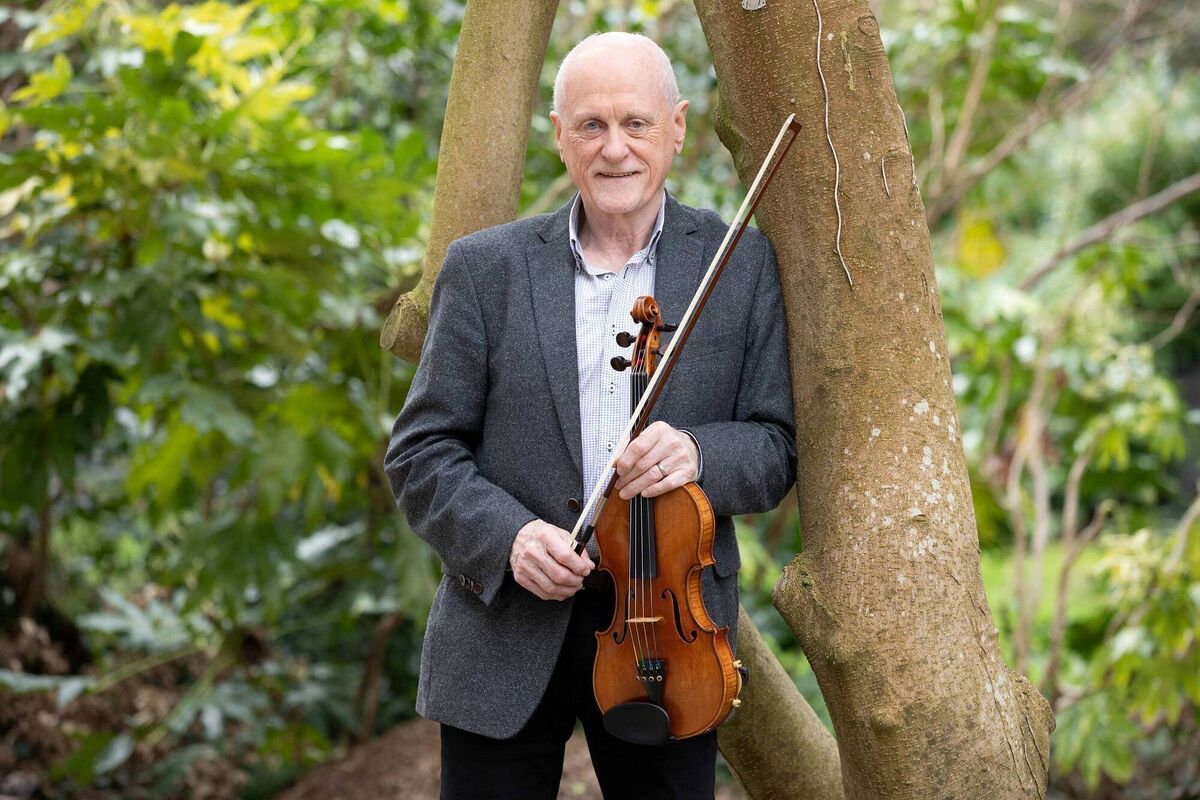Matt Cranitch takes a bow for lifetime of musical achievement

Cork musician and academic Matt Cranitch is the 2025 recipient of the TG4 Gradam Ceoil for lifetime achievement. Picture: Bryan Brophy
Researching for a masters degree was the plan, and UCC Professor of Music Aloys Fleischmann was keen that his student Matt Cranitch adhere to it.
The chosen subject of study, however, ended up becoming something of a distraction to the student’s academic achievement, at least in the short term.
Cranitch, already an electrical engineering and music graduate, had chosen as his topic the music of Mick Duggan from near Scartaglen, past pupil of
Sliabh Luachra fiddle master Pádraig O’Keeffe. An engaging subject for any devotee of the music of the Cork-Kerry-Limerick borders.
In fact so absorbing did the research prove that Cranitch was “sidetracked totally” by the music and the degree was put on the long finger.
From Fleischmann and piper Tomás Ó Cannain, initially Cranitch’s engineering lecturer before taking on the role in UCC’s music department left vacant by Seán Ó Riada’s death, he “learned a huge amount about music”.
“Fleischmann was a huge encouragement to me and when I finished my BMus he exhorted me to do a masters,” he says. “I spent two or three years visiting Mick Duggan very frequently and working towards this masters, but of course I got sidetracked totally.
“The draw of the music and of visiting Scartaglen, Gneeveguilla, Knocknagree, passed out the poor masters and the masters never happened. Professor Fleischmann used to hound me, saying ‘Mr Cranitch, your deadline…’”
If the academic journey took a detour, it was certainly no derailment, however. Cranitch went further down the route of studying the music and self-devised notation systems of O’Keeffe (1887-1963), spending the following decades immersed in the region’s music and receiving a government research scholarship in 2002.
The masters research “wasn’t a lost cause in any way”, Cranitch explains. “On one of those occasions I visited Mick Duggan, in February 1978, I was going down with my tape recorder to record his playing, but when I was about to leave the house he presented me with three manuscript books of tunes written out in standard notation. And buried inside in these were six loose sheets of flimsy notepaper with Pádraig O’Keeffe’s handwriting on them and these were all O’Keeffe original manuscripts, using his system of numbers.
“As it transpired, these manuscripts were written in his accordion system, not the fiddle system, but that was a kind of landmark day in my life — I had possession of original O’Keeffe manuscripts.
“I spent a good deal of the following 20 years of my life going through the O’Keeffe stuff and acquiring a huge amount more of that material, particularly the fiddle notation, and studying all that. The masters had long since been forgotten but all the information that I had collected I found exceedingly useful and as time went on I got deeper into it.”

Cranitch undertook an extensive video-recording project on O’Keeffe’s former pupils, gaining “huge insight into this music”.
“Out of all that eventually grew my desire to commit some of this to print and I started writing articles and going to conferences, and all that culminated in 2006 in the University of Limerick awarding me a PhD for my study on Pádraig’s fiddle playing — so the masters that I had almost forgotten about came good again.
“In parallel with all that I was continuing to play music and in a way the visits that I made to the Sliabh Luachra area, ostensibly to interview Mick Duggan or Johnny O’Leary or any of the other people, invariably finished up as long playing sessions, so I acquired as much about the tradition through playing with them and experiencing it at first hand, rather than just asking a series of questions.”
It was a furthering of a musical discovery process that began in Cranitch’s early childhood in Rathduff, between Cork and Mallow, his father playing fiddle and accordion. Raised through the Irish language, he and siblings Bríd, Eilís, and Peadar attended Cork School of Music and played as a family band at musical gatherings across Cork and Kerry.
Though taught classical violin, “as time went on, traditional music won out”, he says, noting the influence of Ciarán Mac Mathúna’s radio programme A Job of Journeywork.
“It was there that I first heard people like Paddy Canny and Denis Murphy and heard about Pádraig O’Keeffe and all of that tradition.”
All-Ireland Fleadh titles, Fiddler of Dooney and Oireachtas Crotty Cup success brought official confirmation of his fiddle skills, which took full flight with the formation of the group Na Filí with Ó Canainn, Raymond O’Shea, and later Tom Barry.
Albums followed, as they did from Cranitch’s ongoing musical collaborations with Dave Hennessy and Mick Daly as Any Old Time and with Dónal Murphy and Tommy O’Sullivan in the group Sliabh Notes.
While Cranitch dabbled in American old-time and bluegrass styles, his 1984 album of fiddle slow airs, , reflected his sojourns in Cork and Kerry Gaeltachtaí, drawing on influences from the sean-nós singing tradition.
One of Cranitch’s most enduring fiddle-accordion partnerships has been with Kanturk’s Jackie Daly, though it was a connection consolidated not in Cork, but America.

“I had known Jackie since I was a young lad when as a family we used to visit the féile ceoil in Kanturk,” he says. “Over the years we would have played together occasionally. When Jackie was living here in Cork the big music pub in the late 70s and early 80s was the Phoenix Bar in Union Quay and for a while there was put together a céilí band called the Phoenix Céili Band and we would have played together in that combination.”
In the early 2000s he and Daly were both regular guests at the Catskills Irish Arts Week in New York.
“Initially he and I were operating independently of each other in the sense that we would play our concerts with various other musicians, but after a couple of years Paul Keating, artistic director of the Catskills Irish Arts Week, suggested that he would put the two of us on the same concert billing because he thought that would work — and it worked out hugely well,” says Cranitch.
The pair frequently perform together, recording albums and , with Cranitch compiling and editing the 226 tune compositions published in 2022 in .
Publishing is familiar ground for Cranitch, whose 1988 has become something of a musicians’ bible, now in its fourth edition.
Research for both book and PhD drew Cranitch’s focus towards bowing technique as definitive to the art of fiddle-playing.
O’Keeffe’s notations for his students “specified totally, from start to finish, in every tune, bowing directives in the sense of how many notes to slur, up-bows, down-bows, and as part of my PhD studies I went though five or six hundred of those manuscripts”, he says.
“The bow is what creates the characteristic entity, rhythm, or personality of the tune in question, and how the bow is used, in the sense of what notes you lengthen, length of bow, articulation… and when I started to study Pádraig’s notations and listening to his music I realised that he had realised this all those years ago as well, and written it out.”

A musician with the ability to make scholarly analysis of the tunes he plays and their notation, Cranitch has helped raise the profile of the Sliabh Luachra tradition as a subject of academic research and his lifetime achievements will be celebrated with the awarding of a Gradam Saoil at next month’s TG4 Gradam Ceoil awards.
Further achievements are also on the horizon, as despite a health scare, both his work on O’Keeffe and his own musical performance projects continue apace.
His musical collaborations have frequently been with accordion players, but his latest project focuses instead on recording twin fiddle tracks for a CD with his former student Caoimhe Flannery of Rockchapel in North Cork, “with a great emphasis on the Sliabh Luachra tradition”.
In tandem with this is a venture which will see his academic work bear fruit in a very practical sense. Compared to staff notation or the writing of ABCs when teaching or learning traditional music, “I think the O’Keeffe methodology trumps them all, it’s so good,” he says.
All work was paused in January 2018, however, when while walking near his home in Ballincollig, Cranitch experienced a “sensation” and his wife “directed me towards the doctor’s surgery, and the doctor directed me to the hospital, and before long I was diagnosed as needing cardiac surgery”.
“All that happened very, very quickly and it took me some months to recover but I am delighted to say that I have.
“I know it’s a cliché to say that it made me value what I do more, but it’s also true. The time to do what I’m doing is now, and not defer it.”
- The TG4 Gradam Ceoil 2025 Awards Concert is at the University Concert Hall Limerick on Sunday, May 4. It will also be broadcast live on TG4 at 9.30pm. Tickets: uch.ie


